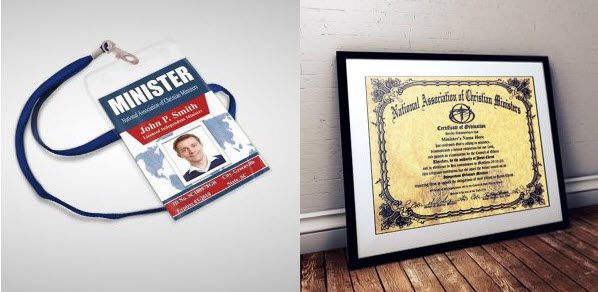What Is the Difference Between a Licensed and an Ordained Minister?
What Is an Ordained Minister License?
Understanding the difference between ordination and licensing is essential for anyone pursuing Christian ministry. A licensed minister is:
- A member of the clergy;
- Recognized for a specified period of time as being in good standing with a professional ministerial association, denomination, or fellowship of churches.
The term indicates that an institution has granted a license to practice ministry for a specific time, renewed periodically for accountability and record accuracy. This renewal process does not mean a minister’s calling expires. Scripture reminds us, God’s gifts and his call are irrevocable (Romans 11:29).
The phrases minister license and ministry license (sometimes misspelled as minister licence) refer to official recognition that allows a person to conduct spiritual leadership within a faith community. Though often used informally, some refer to this as a “license to preach.”
Confusion often arises over ministry roles. For instance, some churches may license a deacon for hospital or prison visitation but not for preaching. In such cases, the person holds a specific ministry assignment rather than a general preaching license.
Who Needs a Minister License?
To determine whether a minister needs a license, consider these two questions:
- Will the minister visit jails, hospitals, or nursing homes?
- Will they officiate weddings?
If the answer is yes to either question, maintaining a valid minister license in good standing is highly recommended. Many institutions require official credentials before granting access or recognition.
For example, county jails and hospitals often ask for ministerial identification and proof of certification before granting entry. Similarly, nursing homes or hospice facilities typically require verification that a visiting minister is credentialed.
Who May Perform Weddings?
The laws governing who can officiate weddings vary by state. Some states require minister registration, while others recognize ordination credentials alone.
Example: Ohio Minister Registration
In Ohio, ministers must officially register with the state before performing weddings. This involves submitting an Ohio minister license application with original, signed copies of both the ordination certificate and minister license (fellowship card) from the recognized religious organization. Photocopies or duplicates are not accepted. Once approved, ministers appear in the Ohio Minister Search Database, where the public can verify their credentials. To view registered ministers from the National Association of Christian Ministers, enter that name in the denomination field and select run report.

Not all states require registration. Most rely on the honor system, trusting that ministers act in good faith within their calling and credentials. For instance:
- South Carolina requires that a wedding officiant be a minister of the gospel authorized to administer oaths by an organization in good standing.
- Texas considers licensed and ordained ministers equivalent for the purpose of marriage ceremonies.
Do you need a Minister’s License? Click Here to Apply with the NACM.
Note: This information is not legal advice. Each minister must verify specific legal requirements in their state or county before officiating weddings.

